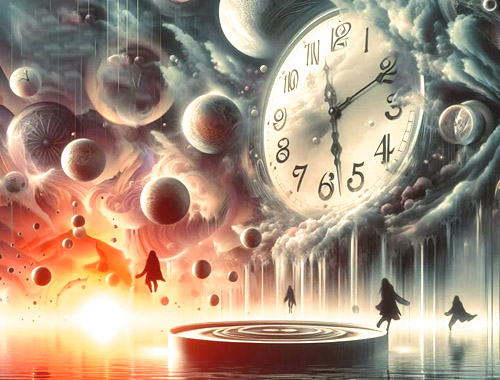Hallucinations

Published: 18 Jun 2025
ICD9: 780.1 ICD10: R44.3 ICD11: MB27.2Z
The term "hallucinations" refers to sensory experiences that appear real but are created by your mind.
They can affect any of your five senses. This means you might:
![]() See things that aren't there (visual hallucinations)
See things that aren't there (visual hallucinations)
![]() Hear sounds or voices that aren't there (auditory hallucinations)
Hear sounds or voices that aren't there (auditory hallucinations)
![]() Smell odors that no one else can smell (olfactory hallucinations)
Smell odors that no one else can smell (olfactory hallucinations)
![]() Taste flavors without anything in your mouth (gustatory hallucinations)
Taste flavors without anything in your mouth (gustatory hallucinations)
![]() Feel sensations on your skin when nothing is touching you (tactile hallucinations)
Feel sensations on your skin when nothing is touching you (tactile hallucinations)
Key characteristics of hallucinations:
![]() They occur without an external stimulus: Unlike illusions, which are misinterpretations of real sensory information, hallucinations are experienced in the absence of any actual external input.
They occur without an external stimulus: Unlike illusions, which are misinterpretations of real sensory information, hallucinations are experienced in the absence of any actual external input.
![]() The person experiencing them believes they are real: Despite being internally generated, the individual experiencing hallucinations perceives them as genuine sensory perceptions.
The person experiencing them believes they are real: Despite being internally generated, the individual experiencing hallucinations perceives them as genuine sensory perceptions.
![]() They can vary in intensity and content: Hallucinations can range from mild and fleeting to intense and persistent. Their content can be simple or complex, and may be related to the person's thoughts, emotions, or past experiences.
They can vary in intensity and content: Hallucinations can range from mild and fleeting to intense and persistent. Their content can be simple or complex, and may be related to the person's thoughts, emotions, or past experiences.
Causes of Hallucinations:
Hallucinations can be caused by a variety of factors, including:
![]() Mental health conditions: Schizophrenia, bipolar disorder, psychosis, and severe depression are often associated with hallucinations.
Mental health conditions: Schizophrenia, bipolar disorder, psychosis, and severe depression are often associated with hallucinations.
![]() Neurological conditions: Parkinson's disease, Alzheimer's disease, dementia, brain tumors, and seizures can sometimes cause hallucinations.
Neurological conditions: Parkinson's disease, Alzheimer's disease, dementia, brain tumors, and seizures can sometimes cause hallucinations.
![]() Substance use: Alcohol, hallucinogenic drugs (e.g., LSD, psilocybin), and stimulants (e.g., amphetamines, cocaine) can induce hallucinations. Withdrawal from alcohol or certain drugs can also trigger them.
Substance use: Alcohol, hallucinogenic drugs (e.g., LSD, psilocybin), and stimulants (e.g., amphetamines, cocaine) can induce hallucinations. Withdrawal from alcohol or certain drugs can also trigger them.
![]() Medical conditions: High fever, dehydration, electrolyte imbalances, liver failure, and kidney failure can sometimes cause hallucinations.
Medical conditions: High fever, dehydration, electrolyte imbalances, liver failure, and kidney failure can sometimes cause hallucinations.
![]() Sleep disorders: Narcolepsy and sleep deprivation can lead to hallucinations, particularly hypnagogic (occurring while falling asleep) or hypnopompic (occurring while waking up) hallucinations.
Sleep disorders: Narcolepsy and sleep deprivation can lead to hallucinations, particularly hypnagogic (occurring while falling asleep) or hypnopompic (occurring while waking up) hallucinations.
![]() Sensory deprivation: Prolonged isolation or lack of sensory input can sometimes induce hallucinations.
Sensory deprivation: Prolonged isolation or lack of sensory input can sometimes induce hallucinations.
![]() Medications: Some medications can have hallucinations as a side effect.
Medications: Some medications can have hallucinations as a side effect.
When to Seek Help:
If you or someone you know is experiencing hallucinations, it's important to seek professional help. A doctor or mental health professional can help determine the underlying cause and recommend appropriate treatment.
In conclusion, hallucinations are false sensory perceptions that can significantly impact an individual's reality. They can be a symptom of various underlying conditions and require careful evaluation and management.